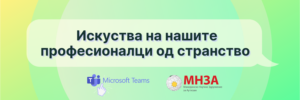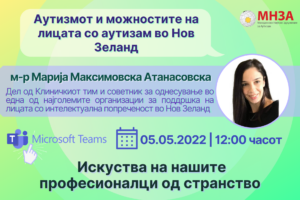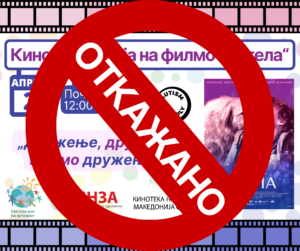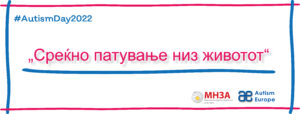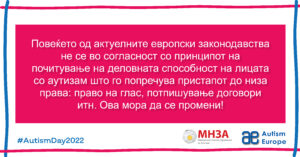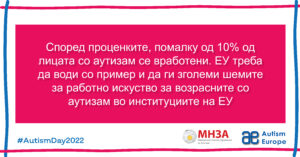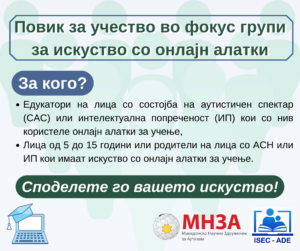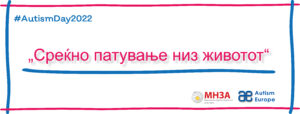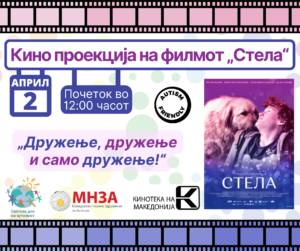Почитувани,
Пристапно дигитално образование за ученици со аутизам и интелектуална попреченост: Иновативни решенија и подобрување на компетенциите на едукаторите. Проектот ISEC-ADE (Пристапно дигитално образование за ученици со аутизам и интелектуална попреченост: иновативни решенија и подобрување на компетенциите на едукаторите), беше започнат во 2022 година од меѓународен конзорциум партнери со поддршка од Еразмус плус програмата на Европската унија, како одговор на проширувањето на образовниот јаз и влошување на нееднаквостите на учениците со состојби на аутистичниот спектар (САС) и интелектуална попреченост (ИП) низ Европа, каде што пристапот до можностите за учење што ги нуди дигиталната технологија за ученици со САС и ИП е многу ограничен. Образовниот систем се повеќе е дел од дигиталната трансформација и може да ги искористи нејзините придобивки и можности. Сепак, исто така, треба ефикасно да управува со ризиците од дигиталната трансформација, вклучувајќи го и ризикот од дигитален јаз каде што одредени луѓе можат да имаат повеќе корист од другите. Според ЕАСПД (2020) искуството среде пандемијата на коронавирус, покажа континуирана сегрегација на лицата со попреченост во образовните услови. Оваа сегрегација особено ја доживуваат учениците со „невидливи попречености“ како што се состојбите на аутистичниот спектар (САС) и интелектуалната попреченост (ИП). ISEC-ADE вклучува 6 партнери од академската заедница, експерти за аутизам, професионалци за образование и семејства и тоа од: Македонија се: Македонското научно здружение за аутизам и Аутизам институтот, од Бугарија е: Центар за специјална образовна поддршка „Д-р Петер Берон“, од Кипар е Шипкон, од Грција се: Циклизис и ДАДАА. За ISEC ADE конзорциумот, императив се образовните потреби на учениците со САС и ИП да бидат соодветно адресирани за време на дигиталната трансформација во образованието, без оглед на нивниот тип на школување, имплементирање на правата на лицата со попреченост на инклузивно, достапно и висококвалитетно образование на сите нивоа (UNCRPD). Затоа, главната цел на проектот е да се намали дигиталниот јаз во образованието за ученици со аутизам преку обезбедување инфраструктура за дигитално учење со отворен пристап (веб-апликација) достапна за учениците со аутизам и платформа за споделување на отворени образовни ресурси. Ова ќе одговори на главните предизвици со кои се соочуваат училишните системи поради недостатокот на дигитални алатки и образовни содржини за учениците со САС и ИП. Сепак, на едукаторите им треба збир на дигитални компетенции специфични за нивната професија за да можат да го искористат потенцијалот на дигиталните технологии за подобрување и иновирање на образованието, како и наставни компетенции специфични за САС и ИП. Во однос на оваа потреба, ќе се обезбеди натамошна поддршка на образовната заедница со методолошки насоки за имплементација на дигиталната алатка за достапни и квалитетни можности за учење, како и можности за професионален развој на воспитувачите, бидејќи тие работат на обезбедување на правично образовно искуство за ученици со аутизам и интелектуална попреченост.

